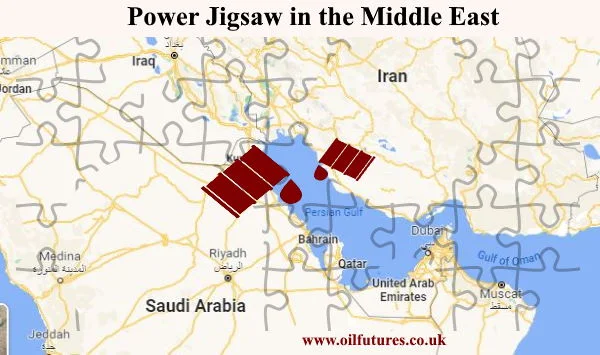After months of uncertainty over the revival of the
JCPOA, 2015 Iranian deal, the diplomatic moves are fully underway to restart
the negotiations.
Both President Biden and President Raisi of Iran
hinted that the next round of talks is in the offing in Vienna, the Austrian
capital.
If Iran is allowed to enter the global crude oil
markets, increased output that the consumers can only dream of at present is
going to become a reality: on one hand, Iran, in the middle of a dire economic
situation, compounded by the pandemic, needs to sell its oil to bolster its
coffers; on the other hand, the world, hit by an acute supply crunch of gas, does
not want yet another energy supply disaster, especially reeling from a
catastrophic impact on the economies due to the pandemic.
Politicians, regardless of where they come from,
rarely give a straight answer to a straight question. It was no different when
it came to the Iranian nuclear issue and the JCPOA either.
As always it is the case, we need to read between
the lines to make out what may come once they talk about important things – in a
few or months’ time, of course.
The regional powers in the Middle East, Saudi
Arabia, the UAE, and Israel, have been vehemently opposing the revival of the Iranian
nuclear deal, citing the fears of Iran developing a nuclear bomb.
The newly elected Israel prime minister even went to
the US to meet President Biden and talk on the issue. The latter must have made
the US position clear to the former in private. In public, President Biden said
he wanted to give diplomacy a chance, while emphasizing what he called, ‘other
options’ at his disposal.
On his return, Israeli position slightly mellowed:
the defence minister said recently that if the JCPOA were to be revived, there
should be a, ‘Plan B’ with regard to the Iranian nuclear issue.
Israel has been threatening Iran with military
attack in the event of the latter making a nuclear bomb. At present, it seems
that the US is restraining the Jewish state against such a move using its
levers of power.
As for the other US allies in the region, the abandonment
by the world’s only Super Power is going to cause serious security problems:
Saudi Arabia now faces Houthi threats from sea as well, in addition to daily
drone and missile attacks.
The US officially requested the oil producers to
increase the supply of crude oil to the markets in order to rein in the soaring
prices at the pumps.
It was not rebuked by the OPEC+; it, however, did
not get a sympathetic ear by the block either.
In this context, the speed at which the revival of the
talks got back to be in the public domain, some analysts suspect, shows a
certain correlation. In short, the US, having been frustrated with its long
term allies, wants Iran to fill the void, if allies do not care about its need
of the hour – an increased supply of crude oil.
As far as crude oil markets are concerned, the
revival of the JCPOA is going to steal the focus of analysts once again,
shadowing the other key factors such as the fall in the US crude inventories;
they fear that Iran will release its crude oil to the market in large volumes
in order to compensate for the losses it suffered for three long years due to US-led
sanctions.
Although it is too early to say that the pandemic is
behind us, the demand for crude oil is firmly back on track and appears to be
irreversible: the latest data from the API, American Petroleum Institute, shows
a fall of over 6.1 million barrels for the week ending September, 17 – much
more that what analysts expected, 2.4 million barrels.
Unless the supply increases in proportion, the price
of crude oil is going to go through the roof and the influential global politicians
are not going to take it lightly – for obvious reasons; then, there will be
inevitable political consequences as we see in the Middle East recently.
Therefore, maintaining a sensible price for crude
oil is in everyone’s interest, because the survival of both producers and
consumers is the urgent need of the hour – especially in the post-pandemic
world, if it is not too early to call it.







